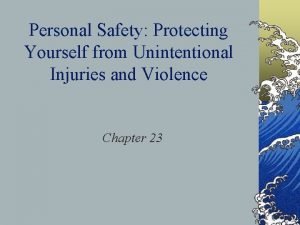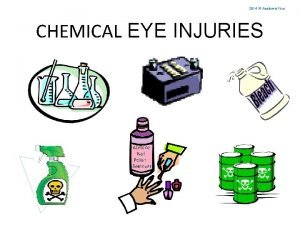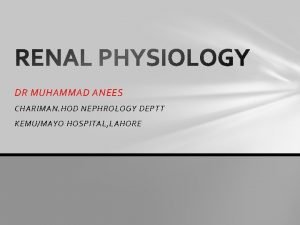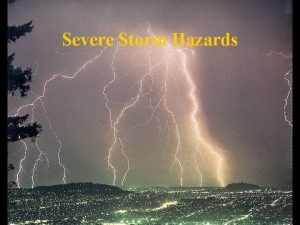Chemicals Hazards Eye Hazards Severe Acid Injury Alkali



- Slides: 3

Chemicals Hazards - Eye Hazards Severe Acid Injury Alkali Injury Severe Alkali Injury Scar from Acid Injury Mild Acid Injury Alkali Injury Severe Alkali Injury Glass Shrapnel Injury

Examples of Firework Related Ocular Trauma (direct bottle rocket injury) Traumatic Eyelid Laceration Blood on Ocular Surface Torn Iris Rupture of Cornea with Iris Prolapsing Out Blood Layering out in Front Part of Eye (Hyphema) Rupture of Cornea with Iris Prolapsing Out

Eye safety with fireworks Attending a public fireworks display on the Fourth of July is a safe and patriotic way to honor out tradition of independence, our shared values, and our hopes for a healthy future. Professional displays rarely lead to injury. If an accident does occur during a non-professional display, what can you do right away to minimize the damage to the eye. These eight action can help save your child's sight. • Do not delay medical attention even for seemingly mild injuries. "Mildly" damaged areas can worsen and end in serious vision loss, even blindness, that might not have happened if treatment had occurred immediately. • Stay calm, do not panic; keep the child as calm as possible. • Do not rub the eye. If any eye tissue is torn, rubbing might push out the eye's contents and cause more damage. Trying to rub the eye is an automatic response to pain, but pressure will only do more harm. Take the child's hand from his or her face. • Do not attempt to rinse out the eye. This can be even more damaging than rubbing. • Shield the eye from pressure. Tape or secure the bottom of a foam cup, milk carton or similar shield against the bones surrounding the eye: brow, cheek and bridge of the nose. • Avoid giving aspirin or ibuprofen (or other non-steroidal anti-inflammatory drugs, called "N-SAIDS") to try to reduce the pain. They thin the blood and might increase bleeding. Acetaminophen is the over-the-counter drug of choice. Unfortunately, non-prescription painkillers will not be of much help. It is better to by-pass the drugstore or medicine cabinet and get to the emergency room right away. • Do not apply ointment or any medication. It is probably not sterile. Also, ointments make the eye area slippery. This could slow the doctor's examination at a time when every second counts. • Above all, do not let your child play with fireworks. If you must attend a non-professional fireworks display, have all present wear safety goggles (which may not prevent all injuries). Regular glasses will not prevent injury, and may break or shatter if impacted by flying debris. Again, the best option is to attend a professional fireworks display.





